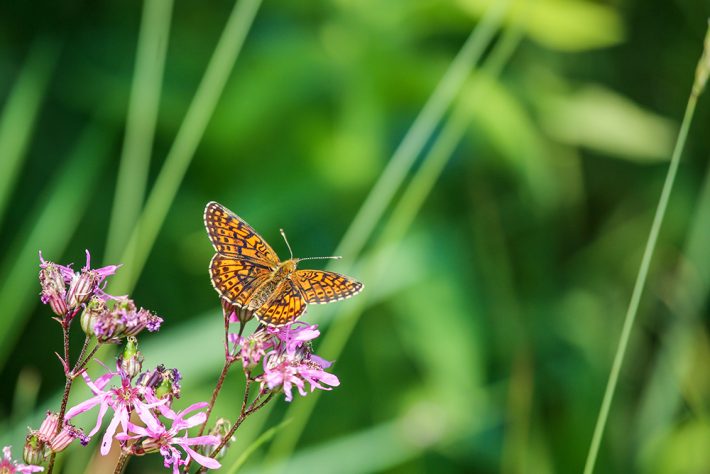British Ecological Society awards journal prizes to early career researchers
Each year, the BES awards a prize for the best paper by an author at the start of their research career for each of its five journals.
We would like to congratulate all of the winners for their outstanding papers.
The BES is also proud to announce that its new journal launched earlier this year, People and Nature, will be included in these awards next year.

The full list of 2018 BES Journal Prizes winners is as follows:
- Harper Prize (Journal of Ecology): Dr Rutuja Chitra-Tarak, Los Alamos National Lab, USA
Rutuja Chitra‐Tarak , Laurent Ruiz, Handanakere S. Dattaraja, et al. The roots of the drought: Hydrology and water uptake strategies mediate forest‐wide demographic response to precipitation. J Ecol 2018, 106:4. DOI: 10.1111/1365-2745.12925
Rutuja Chitra-Tarak and colleagues modelled how trees use water at different soil depths to explain species variation in drought resilience.
Read more about Rutuja’s winning paper and access all the shortlisted papers in this special virtual issue.
- Robert May Prize (Methods in Ecology and Evolution): Dr Laura Russo, University of Tennessee Institute of Agriculture, USA
Laura Russo, Adam D. Miller, John Tooker et al. Quantitative evolutionary patterns in bipartite networks: Vicariance, phylogenetic tracking or diffuse co-evolution? Methods Ecol Evol 2018, 9:3. DOI: 10.1111/2041-210X.12914
Laura Russo led work to develop a framework that can incorporate species traits or behaviours to investigate diffuse evolutionary patterns within ecological communities, using plant-pollinator interactions as a case study.
Read more about Laura’s winning paper and access all the shortlisted papers in this special virtual issue.
- Haldane Prize (Functional Ecology): Dr Alexander Strauss, University of Minnesota, USA
Alexander T. Strauss, Anna M. Bowling, Meghan A. Duffy et al. Linking host traits, interactions with competitors and disease: Mechanistic foundations for disease dilution. Funct Ecol 2018, 32:5. DOI: 10.1111/1365-2435.13066
Alexander Strauss and team infected zooplankton with parasites and found that individual host traits, such as disease susceptibility and competitive ability, could predict the size of epidemics in diverse communities.
Find the winning paper as well as the shortlisted papers in this special virtual issue here.
- Southwood Prize (Journal of Applied Ecology): Dr Simon Clulow, Macquarie University, Australia
Simon Clulow, John Gould, Hugh James, et al. Elevated salinity blocks pathogen transmission and improves host survival from the global amphibian chytrid pandemic: Implications for translocations. J Appl Ecol 2018, 55:2. DOI: 10.1111/1365-2664.13030
Simon Clulow is lead author on a paper which showed that manipulating environmental salinity in locations where amphibians are translocated can reduce the impacts of chytrid disease and improve population persistence.
Find the winning paper as well as the shortlisted papers in this special virtual issue here.
- Elton Prize (Journal of Animal Ecology): Dr Hannah White, University College Dublin, Ireland
Hannah J. White, Ian W. Montgomery and Jack J. Lennon. Contribution of local rarity and climatic suitability to local extinction and colonization varies with species traits. J Animal Ecology 2018, 87:6. DOI: 10.1111/1365-2656.12881
Hannah White and colleagues explored the effects of climatic suitability and local rarity on British bird populations, helping us understand future impacts of climate change.
Read more about Hannah’s winning paper and access all the shortlisted papers in this special virtual issue.
The winners of the BES Journal Prizes are invited to present their research at the Society’s annual meeting in December, where 1,200 ecologists from over 40 countries will meet to discuss the latest ecological research spanning across all disciplines. Additionally, winners have received £250, a year’s membership of the BES, and a year’s subscription to the relevant journal.
Like what we stand for?
Support our mission and help develop the next generation of ecologists by donating to the British Ecological Society.